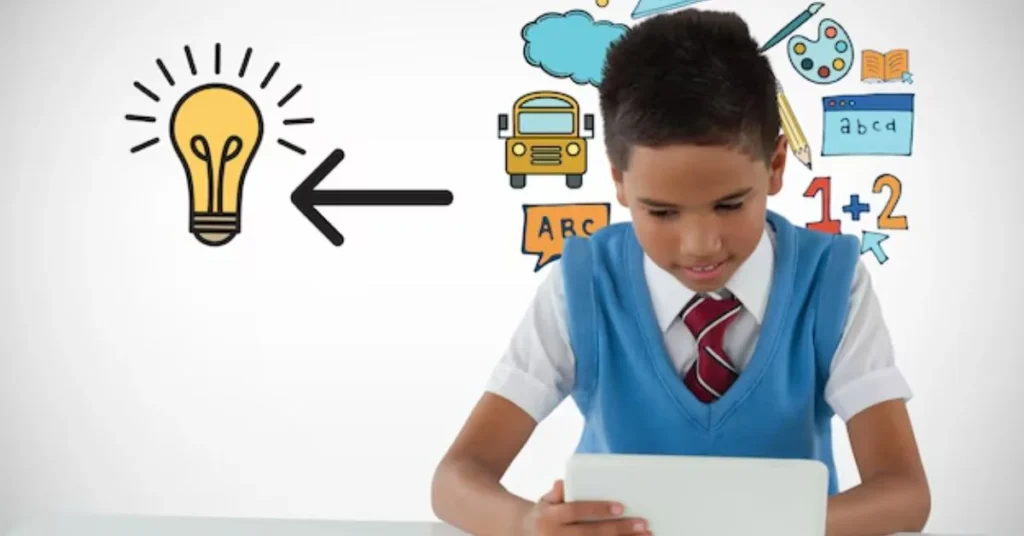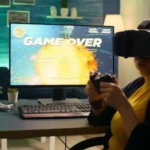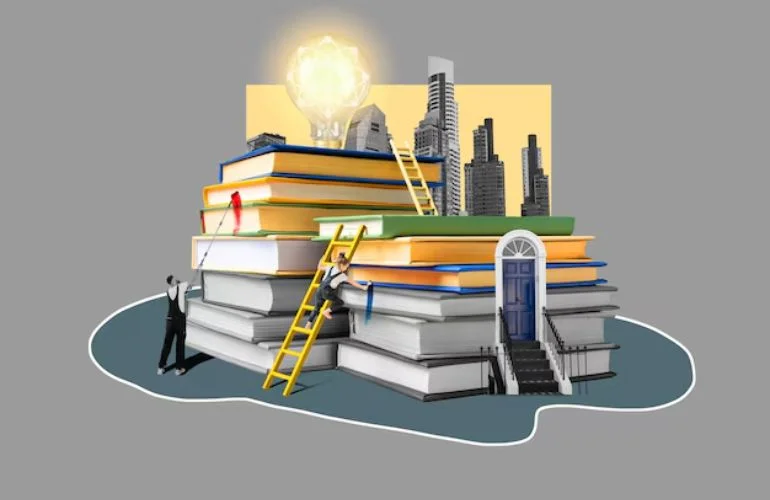In today’s world, where access to education is more widespread than ever before, there exists a curious paradox: so much privilege education so little knowledge. This phrase captures the irony that despite the abundance of educational opportunities available, many people struggle to gain true understanding and practical knowledge. But why is this the case? Why do so many individuals, despite their access to education, find themselves lacking in real-world wisdom and critical thinking skills?
The Meaning Behind “So Much Privilege Education So Little Knowledge”
At first glance, the phrase “so much privilege education so little knowledge” may seem contradictory. After all, education is supposed to be the gateway to knowledge. However, this phrase highlights a growing concern in modern society: that privilege and access to education do not necessarily equate to true understanding or the ability to apply knowledge in meaningful ways.
Privilege and Access to Education
Privilege refers to the advantages that certain individuals or groups have over others, often due to factors like wealth, social status, or geographic location. In many parts of the world, those with privilege have access to high-quality education, private tutors, advanced technology, and a wealth of resources that can enhance learning.
For example, students in affluent areas often attend well-funded schools with small class sizes, experienced teachers, and extracurricular opportunities. They may have access to the latest technology, including laptops, tablets, and online learning platforms. These students can also afford to attend prestigious universities, where they can further their education and gain advanced degrees.
The Knowledge Gap
Despite these advantages, there is a growing concern that many privileged students are not gaining the depth of knowledge that one might expect. Instead, they may excel in memorizing facts for exams, earning high grades, and securing prestigious internships, but they often lack the critical thinking skills, creativity, and real-world problem-solving abilities that are crucial for success in life.
This disconnect between privilege education, and knowledge is not just a concern for the wealthy. It is a widespread issue that affects students from all backgrounds, particularly in an education system that prioritizes standardized testing and rote learning over critical inquiry and creativity.
Must Read Top Academic Strengths for Special Education Preschool Students

Why Is There So Little Knowledge Despite So Much Education?
The question arises: why is there so little knowledge despite so much education? Several factors contribute to this paradox, ranging from the structure of the education system to the ways in which students engage with learning.
1. Focus on Standardized Testing
One of the main reasons for this knowledge gap is the heavy emphasis on standardized testing in many education systems. In an effort to measure student performance, schools often prioritize teaching to the test. This means that students spend much of their time memorizing facts and practicing test-taking strategies, rather than engaging in deep learning or critical thinking.
While standardized tests can measure certain types of knowledge, they often fail to capture a student’s ability to think creatively, solve complex problems, or apply what they have learned in real-world situations. As a result, students may excel on exams but struggle when faced with challenges that require independent thought or innovation.
2. Lack of Critical Thinking Skills
Another factor contributing to the lack of knowledge is the insufficient emphasis on critical thinking skills in many educational curricula. Critical thinking involves analyzing information, questioning assumptions, and considering multiple perspectives before reaching a conclusion. These skills are essential for understanding complex issues and making informed decisions.
Unfortunately, many students are not taught to think critically. Instead, they are encouraged to memorize information and regurgitate it on exams. This approach does not foster a deep understanding of the material or the ability to apply knowledge in meaningful ways.
3. Overreliance on Technology
In today’s digital age, technology plays a significant role in education. While technology can be a powerful tool for learning, it can also contribute to the knowledge gap. With the internet at their fingertips, students can easily access information on any topic. However, this convenience can lead to a superficial understanding of the material, as students may rely on quick internet searches rather than engaging in deep learning.
Moreover, the constant distractions of social media, video games, and other online activities can detract from focused study and meaningful engagement with the material. As a result, students may possess a wealth of information but lack the ability to synthesize and apply it in real-world contexts.
4. Pressure to Succeed
The pressure to succeed academically can also contribute to the knowledge gap. Many students feel immense pressure to achieve high grades, get into top universities, and secure prestigious careers. This pressure can lead to a focus on achieving short-term goals, such as acing exams or getting good grades, rather than engaging in deep learning or pursuing intellectual curiosity.

In this high-pressure environment, students may prioritize rote memorization and test preparation over critical thinking and creativity. They may also be more inclined to take courses that are perceived as easier or more likely to lead to high grades, rather than challenging themselves with subjects that require deeper thinking and problem-solving.
The Impact of “So Much Privilege Education So Little Knowledge”
The consequences of this paradox are far-reaching, affecting not only individual students but also society as a whole. When students graduate with little more than superficial knowledge, they may struggle to navigate the complexities of the real world. This can lead to a range of issues, from difficulty in securing meaningful employment to challenges in making informed decisions as citizens.
1. Employment Challenges
In today’s rapidly changing job market, employers are increasingly looking for candidates who possess not only technical skills but also critical thinking, problem-solving, and creativity. These skills are essential for adapting to new challenges, innovating in the workplace, and contributing to the growth of the organization.
However, many graduates enter the workforce with limited practical knowledge and a lack of the skills needed to succeed in their careers. This can lead to underemployment, job dissatisfaction, and a struggle to advance in their chosen fields.
2. Civic Engagement
The knowledge gap also has implications for civic engagement and participation in democracy. Informed citizens are essential for a healthy democracy, as they are better equipped to understand complex social and political issues, critically evaluate information, and make informed decisions.
When individuals lack critical thinking skills and a deep understanding of important issues, they may be more susceptible to misinformation, propaganda, and manipulation. This can weaken democratic processes and lead to poor decision-making at both the individual and societal levels.
3. Personal Fulfillment
Beyond the practical implications, the knowledge gap can also affect personal fulfillment and well-being. Education is not just about preparing for a career; it is also about developing a rich and meaningful understanding of the world. When students are not encouraged to think deeply, question assumptions, and explore new ideas, they may miss out on the intellectual growth and personal satisfaction that come from true learning.

Bridging the Gap: Solutions for a More Effective Education
So, how can we address the issue of “so much privilege education so little knowledge”? While there is no one-size-fits-all solution, several strategies can help bridge the gap and promote deeper learning.
1. Promote Critical Thinking in the Classroom
One of the most effective ways to address the knowledge gap is to promote critical thinking in the classroom. This can be done by encouraging students to question assumptions, analyze information, and consider multiple perspectives. Teachers can use open-ended questions, debates, and problem-solving activities to foster critical thinking skills.
2. Emphasize Real-World Applications
To make learning more meaningful, educators should emphasize the real-world applications of the material. This can help students see the relevance of what they are learning and motivate them to engage more deeply with the content. For example, So Much Privilege Education So Little Knowledge, teachers can use case studies, simulations, and hands-on projects to show how academic concepts apply to real-world situations.
3. Reduce the Emphasis on Standardized Testing
While standardized tests have their place in education, they should not be the sole measure of student success. Schools should reduce the emphasis on testing and instead focus on a more holistic approach to assessment. This could include portfolio assessments, project-based learning, and other methods that evaluate a student’s ability to apply knowledge in meaningful ways.
4. Encourage Intellectual Curiosity
Fostering a love of learning and intellectual curiosity is essential for deep understanding. Educators should encourage students to explore topics that interest them, ask questions, and seek out new information. By creating a learning environment that values curiosity and exploration, teachers can help students develop a lifelong passion for learning.
5. Integrate Technology Thoughtfully
Technology can be a powerful tool for learning, but it should be integrated thoughtfully into the curriculum. Educators should use technology to enhance learning, not replace it. This means using digital tools to support critical thinking, creativity, and collaboration, rather than simply providing easy access to information.

Conclusion
The phrase “so much privilege education so little knowledge” serves as a reminder that access to education alone is not enough. To truly bridge the knowledge gap, we must rethink our approach to education, focusing not just on what students learn, but how they learn it. By promoting critical thinking, fostering intellectual curiosity, and emphasizing real-world applications, we can help students gain the deep understanding and practical knowledge they need to succeed in life.
In a world that is constantly evolving, it is more important than ever to equip students with the skills and knowledge to navigate the complexities of the modern world. Let us work together to ensure that education fulfills its true purpose: empowering individuals with the knowledge, skills, and understanding to thrive in an ever-changing world. click here
What does “so much privilege education so little knowledge” mean?
The phrase highlights the paradox where individuals with access to high-quality education and resources still lack deep understanding and practical knowledge.
Why is there a gap between education and knowledge?
Factors such as the emphasis on standardized testing, lack of critical thinking skills, overreliance on technology, and pressure to succeed contribute to this gap.
How can we improve the quality of education?
Improving education requires promoting critical thinking, emphasizing real-world applications, reducing reliance on standardized testing, encouraging intellectual curiosity, and thoughtfully integrating technology.
What impact does the knowledge gap have on society? The knowledge gap can lead to challenges in employment, civic engagement, and personal fulfillment, ultimately affecting both individual lives and society as a whole.
How can students gain more practical knowledge? Students can gain more practical knowledge by engaging in critical thinking, applying what they learn to real-world situations, and exploring topics that genuinely interest them.











